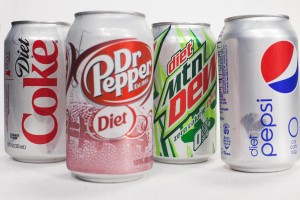 The CDC and local health departments have begun advising physicians to be on the lookout for cases of an unusual respiratory illness known as MERS. Middle Eastern Respiratory Syndrome was first recognized two years ago, and to date has been thought responsible for about 300 deaths. Initially confined to the Middle East, some cases are beginning to show up worldwide as infected travelers return home. Is this an illness that has been with us for thousands of years and is only now being recognized, or has something basic changed in the causative virus or the way we humans interact with nature? Modern technology is helping researchers to begin to understand what is going on – with many questions yet to be answered. What we do know so far is that the cause of MERS appears to be a virus from the “coronovirus” family of viruses – the same family of viruses that cause the common cold. There is no available vaccine or specific treatment recommended for the virus.
The CDC and local health departments have begun advising physicians to be on the lookout for cases of an unusual respiratory illness known as MERS. Middle Eastern Respiratory Syndrome was first recognized two years ago, and to date has been thought responsible for about 300 deaths. Initially confined to the Middle East, some cases are beginning to show up worldwide as infected travelers return home. Is this an illness that has been with us for thousands of years and is only now being recognized, or has something basic changed in the causative virus or the way we humans interact with nature? Modern technology is helping researchers to begin to understand what is going on – with many questions yet to be answered. What we do know so far is that the cause of MERS appears to be a virus from the “coronovirus” family of viruses – the same family of viruses that cause the common cold. There is no available vaccine or specific treatment recommended for the virus.
According to a recent CDC update all reported cases have originated in the Arabian Peninsula: Egypt, Jordan, Saudi Arabia, Yemen, Oman, UAE, Qatr, Kuwait, Jordan. Initially most of the recognized cases were in severely ill people requiring intensive care and presenting with fever, cough, and shortness of breath. However, just like influenza and many other viruses, there are likely many much milder cases – perhaps just a case of the “sniffles” that affect most people. However, once hospitalized, ill people can spread the virus to health care workers who need to practice meticulous hygiene, including wearing special respirator masks. This is reminiscent of an earlier outbreak of “SARS,” Severe Acute Respiratory Syndrome a different coronovirus imported from China to Canadian health care workers a number of years ago that was eventually controlled by strictly isolating patients and the quarantine of over 5000 people in Toronto alone.
Officials do not know for sure where the MERS virus comes from or exactly how it spreads, but there is increasing evidence that camels may be an important reservoir of the virus. As reported in “Science” magazine, a Dutch team has found that up to 1 in 50 camels in that part of the world carry the virus. In one study 9 percent of those who care for the camels show evidence of having had the virus at some point in the past. The emergence of camel racing as a multi-million dollar sport where camels from over the world are boarded together and age-old customs such as sharing camel milk with guests, and offering camel liver or concentrated virgin camel urine as a delicacy to guests may well play a role in the spread of this virus.
Hopefully the MERS virus outbreak will be contained as was the SARS outbreak in 2002. Those visiting that part of the world should be cautious about drinking camel milk unless pasteurized or eating meat not properly cooked. Those with depressed immune systems with chronic medical conditions such as diabetes, kidney disease, or emphysema should be cautious about being in contact with camels.
At this point anyone who becomes ill with fever and respiratory symptoms after visiting the Arabian Peninsula, or who becomes ill after being around people recently returned from that part of the world, should seek medical care. We have much more to learn about this virus whose recent emergence reminds us that ancient customs, when linked to our modern jet age, can create unique and global medical problems. Fortunately, we also live in an age where we have the technology that so far has been able to to identify and control these outbreaks.



